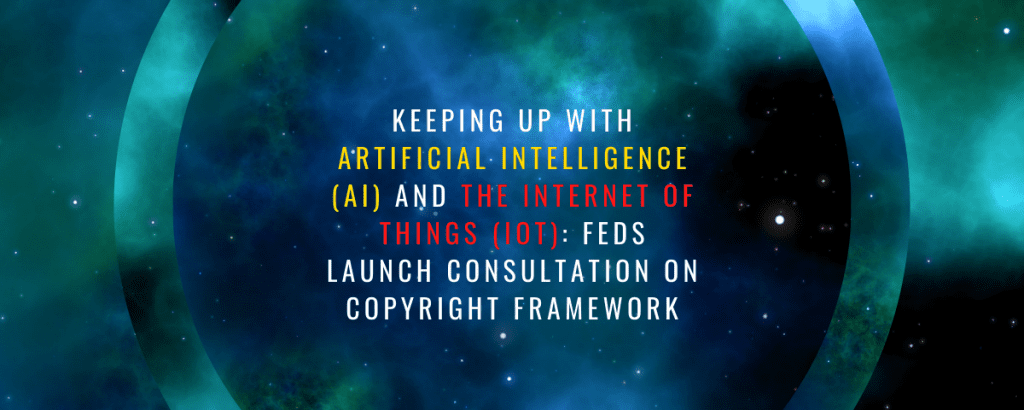AI and IoT each represent a major technological evolution which raise questions about the future of copyright laws in our data-driven economy and AI marketplace.
Background
The recently launched “Consultation on a Modern Copyright Framework for AI and IoT” on July 16, 2021 seeks to ensure that Canada’s copyright framework can handle recent advancements in AI, growth of IoT, and use of everyday software-enabled devices. See: https://www.canada.ca/en/innovation-science-economic-development/news/2021/07/the-government-of-canada-launches-consultation-on-a-modern-copyright-framework-for-ai-and-the-internet-of-things.html
In particular, the government is seeking submissions on the use of copyrighted works as part of text and data mining (TDM) for developing AI software, authorship and ownership of works created by AI, AI infringement and liability, and repair and interoperability problems for software-enabled devices in connection with related technological protection measures (TPM).
By way of background, Sections 29 (Fair Dealing for Research, etc.) and 30.71 (Temporary Reproductions for Technological Processes) of the Copyright Act allow for exceptions to copyright infringement which may be relevant to certain TDM activities. However, at present there exists a legislative gap in the current fair dealing exceptions when it comes to AI and AI infringement. Moving forward, it may be that there may be a possible change to add a specific TDM exception to AI infringement under the Act.
Wider Issue of Authorship in AI Content
Apart from technical submissions, one set of fundamental copyright policy questions concerning AI is the authorship and ownership of works generated by AI or AI-assisted works (with or without human intervention). More to the point, is AI becoming a reality that we must now adapt to by granting copyright rights to owners of AI-generated works without exercise of skill and judgment OR should copyright always requires the exercise of skill and judgment (at least to some extent) by a human, i.e. where the copyright term is linked to the life and death of a first (human) author and includes “moral rights”?
Recent advancements in AI and sophisticated TDM have allowed the creation of potentially “original” works or independently created content (e.g. movie scripts, music, animation, etc.) with little human input, which in days gone by, may have been created by humans as natural first authors. Alternatively, should these works – created autonomously by AI alone – merely fall into the public domain because they do not qualify for copyright protection?
Your submissions may be e-mailed to copyright-consultation-droitdauteur@canada.ca but only until September 17, 2021
Please contact us should you have any questions.

